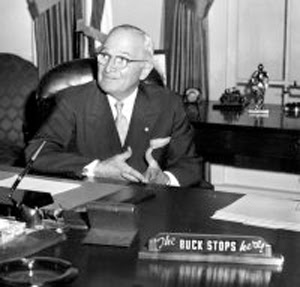“Catch phrases” of the English Language

I have always been fascinated with the English language and, in particular, the colorful phrases that we spout off so freely. We all know that “it’s a piece of cake” means that it would be an easy task...but, where did that saying originate? I tried to find the answer but there were many conflicting opinions. It was often paired with “easy as pie” and I was amused to read that many women said it must have been coined by a male since “there’s nothing easy about making a pie...or a cake, for that matter.”
I was reminded of Dorothy Parker, (1893-1967), the controversial American writer who was best known for her caustic wit. While playing a word game with some friends she was challenged to use the word HORTICULTURE in a sentence. She came up with this now-famous sentence: “You can lead a horticulture, but you can’t make her think.”
Of course this is a take-off from the well known caption “You can lead a horse to water but you can’t make him drink” …meaning that you can’t make a person (or horse) do what they don’t want to do. Evidently, from my research this is one of the older proverbs in the language and dates back to 1546 when it was included in a book of proverbs in the English tongue, by John Heywood.
Then there is our plain-speaking US President Harry S Truman. He is credited with two phrases that have stood the test of time (since 1949). They are: “If you can’t stand the heat, get out of the kitchen” which he often would say to his staff, and: “The buck stops here.” He did not originate the later but had a sign to that effect on his desk for his stint as President so he is usually thought to have coined it.
And, of course, when our carefully prepared plans go wrong we are quick to shrug our shoulders and say: “The best laid schemes of mice and men often go astray”. This can be traced directly to a Robert Burns’ poem entitled “To A Mouse, 1786”. He had upturned a mouse’s nest while plowing a field and the poem is his apology to the mouse !
“Not worth a plugged nickel” is our way to say that something is worthless. Versions of this phrase started to appear in the 1880’s when disreputable people were routinely tampering with American coins. Holes would be made in the coins of all denominations and then they were filled with a cheaper metal. They were literally plugged and not worth a nickel if detected.
Well, I could go on forever, but my research has left me with the feeling that I “need to take everything with a grain of salt” when it comes to colorful phrases. It is indeed true that most foods taste better with a hint of salt, so I guess it would follow that many ideas are made more palatable when a pinch of metaphoric salt is added.

9 Comments:
Very interesting, but off I go to do my tasks because "a stitch in time saves nine."
A great post! Just loved the horticulture bit ;)
I agree that the origins of such phrases are most interesting. Frequently they allude to a bygone era, and we no longer know the lifestyle that produced the phrase.
Ginnie, have you read the book "A Hog on Ice?"
I can't remember the author'sname, but it lists many of our catch-phrases and tells how they originated. You'd enjoy it, I'm sure.
My mom used to study catch phrases a bit and I always found it so interesting. Thanks for taking me back to a time when she was around.
Hugs,
Laurie
I always liked Harry Truman's quotes. I searched the web for any by 'Dubya' and all I found was gibberish !
This was fun, Ginnie, and very interesting. I've often wondered where some of our catchphrases come from.
And "When all is said and done..." this was a great post. Very interesting on the history of those phrases that have stood the test of time.
Ginnie,
The book Kenju is talking about is by Charles E. Funk, who also wrote "Horsefeathers" and two other books on the origins of expressions and unusual words.
Post a Comment
<< Home